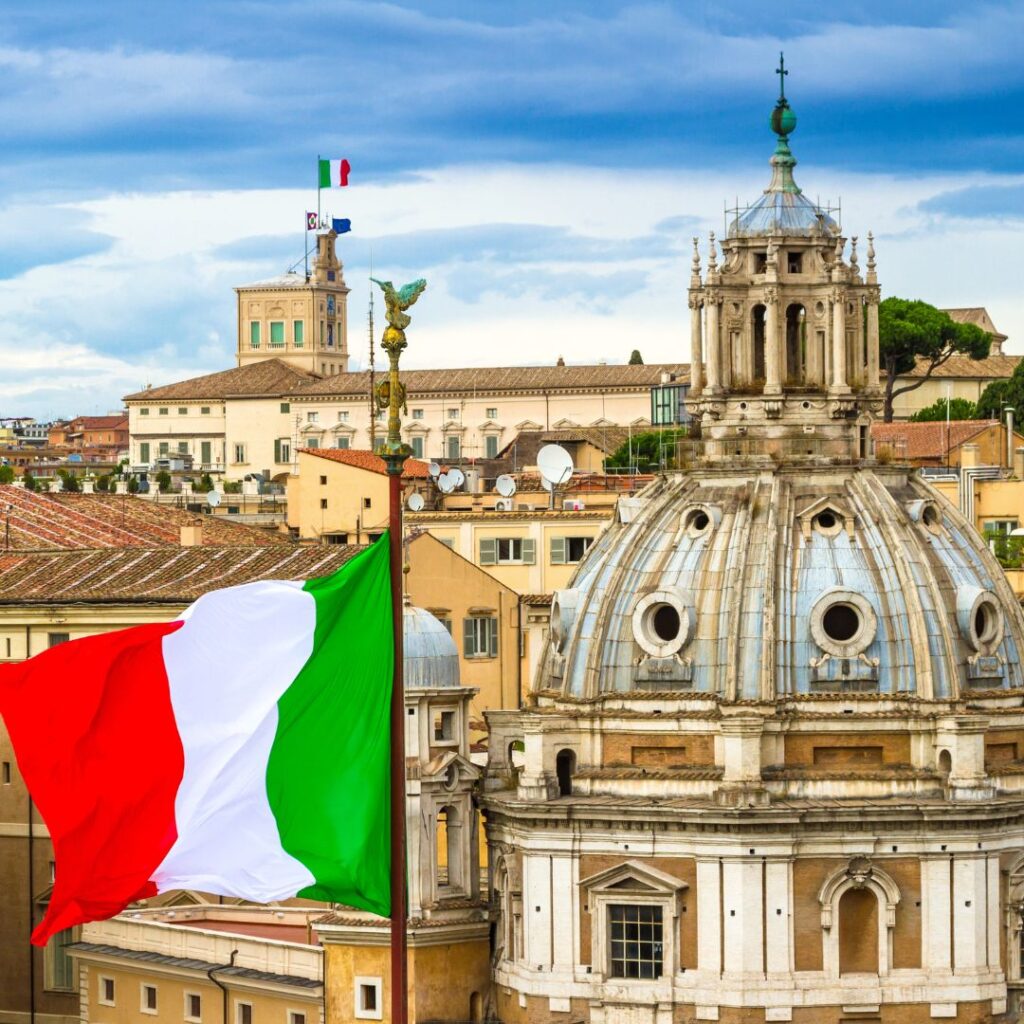STUDY IN ITALY
1. Academic excellence:
Italy boasts some of the world’s oldest and most prestigious universities, like the University of Bologna and La Sapienza University of Rome. These institutions offer a wide range of programs in various fields, taught by renowned professors and researchers
2. Immerse yourself in Italian culture:
From the Colosseum in Rome to the canals of Venice, every corner of Italy is a living museum. Studying here allows you to immerse yourself in this vibrant culture, experiencing art, architecture, music, and traditions firsthand.
3. Master the Italian language:
Learning Italian is not just about fluency; it’s a gateway to understanding the soul of the country. Living and studying in Italy provides the perfect opportunity to hone your language skills and gain a deeper appreciation for Italian culture.
4. Affordable fees and scholarships:
Compared to other popular study destinations, Italy offers relatively affordable tuition fees, particularly at public universities. Numerous scholarships and financial aid options are also available, making Italy a more accessible choice for many students.
5. Culinary paradise:
Italian cuisine is world-renowned for its simplicity and fresh ingredients. From fresh pasta and wood-fired pizzas to regional specialties and mouthwatering gelato, your taste buds will be in for a treat every day.
6. Travel hub of Europe:
Italy’s central location makes it a perfect base for exploring other European countries. You can easily hop on a train or plane and experience the diverse cultures and landscapes of Spain, France, or Germany during breaks or weekends.

7. Career opportunities:
An Italian degree or even fluency in the language can open doors to exciting career opportunities in various fields, especially those related to tourism, fashion, design, and international relations.
8. Warm and welcoming environment:
Italians are known for their hospitality and warmth. You’ll find a supportive community on campus and in your local town, making you feel at home quickly.
9.Stunning landscapes:
From the rolling hills of Tuscany to the dramatic cliffs of Amalfi Coast, Italy offers breathtaking natural beauty. You can hike through national parks, relax on pristine beaches, or explore charming villages, creating lasting memories during your studies.10. Enriching lifestyle:
Italians value good food, family, and leisure. Studying in Italy allows you to embrace this slower pace of life, learn to appreciate the finer things, and discover the joys of living in the moment.Ultimately, the decision of whether or not to study in Italy depends on your individual goals and preferences. But if you're seeking an academic and cultural adventure, delicious food, breathtaking scenery, and a warm and welcoming environment, Italy should be at the top of your list!
Most Frequently Asked Questions
While knowing some Italian is beneficial, there are numerous English-taught programs available, especially at postgraduate levels. However, immersing yourself in the language is highly encouraged for cultural integration and future career prospects.
Tuition fees in Italy are relatively affordable compared to other popular study destinations, particularly at public universities. Expect around €900 to €4,000 per year for undergraduate studies and €6,000 to €20,000 for postgraduate studies. Living expenses vary depending on your location and lifestyle, but budget roughly €600-€1,000 per month
Requirements vary depending on the university and program. Generally, you’ll need:
- High school transcripts with good academic standing in relevant subjects.
- Standardized test scores like SAT, ACT, or IELTS for English proficiency (if applicable).
- Letters of recommendation from teachers or professors.
- Personal statement showcasing your motivation and why you’re a good fit.
Several options exist, including:
- Italian Government Scholarships: Offered for various study levels and fields through the Ministry of Foreign Affairs and International Cooperation.
- Erasmus Mundus Joint Master Degrees: Funded by the EU, offering scholarships for international students in specific Master’s programs.
- University-specific scholarships: Many universities offer their own scholarships for international students.
EU/EEA students don’t need a visa, but non-EU students require a long-stay student visa. The process involves meeting eligibility requirements, submitting application materials (including proof of financial support and health insurance), and attending a visa interview at the Italian consulate in your home country.
International students holding a valid visa can work up to 20 hours per week during the semester and full-time during breaks. You can seek on-campus or off-campus work opportunities.
Italy is a safe country with a low crime rate. Universities provide support services and resources to ensure students’ safety and well-being.
Italian culture emphasizes family, food, social interaction, and the “dolce vita” (sweet life). Be prepared for a slower pace of life compared to some other countries and enjoy leisurely meals, vibrant conversations, and a focus on appreciating life’s simple pleasures.
- World-class education with renowned universities in various fields.
- Immersive cultural experience with rich history, art, and architecture.
- Opportunity to learn or improve Italian language skills.
- Relatively affordable tuition fees and scholarship options.
- Central location in Europe for easy travel opportunities.
- Gain valuable career advantage with an Italian degree or language fluency.
- Diverse and welcoming student community.
- Experience the joys of Italian cuisine, stunning scenery, and a relaxed lifestyle.
- Bureaucracy: Administrative processes can sometimes be slow and complex.
- Language barrier: While English is spoken in tourist areas, learning Italian will significantly enhance your experience.
- Cultural differences: Be prepared to adapt to a slower pace of life and different communication styles.
